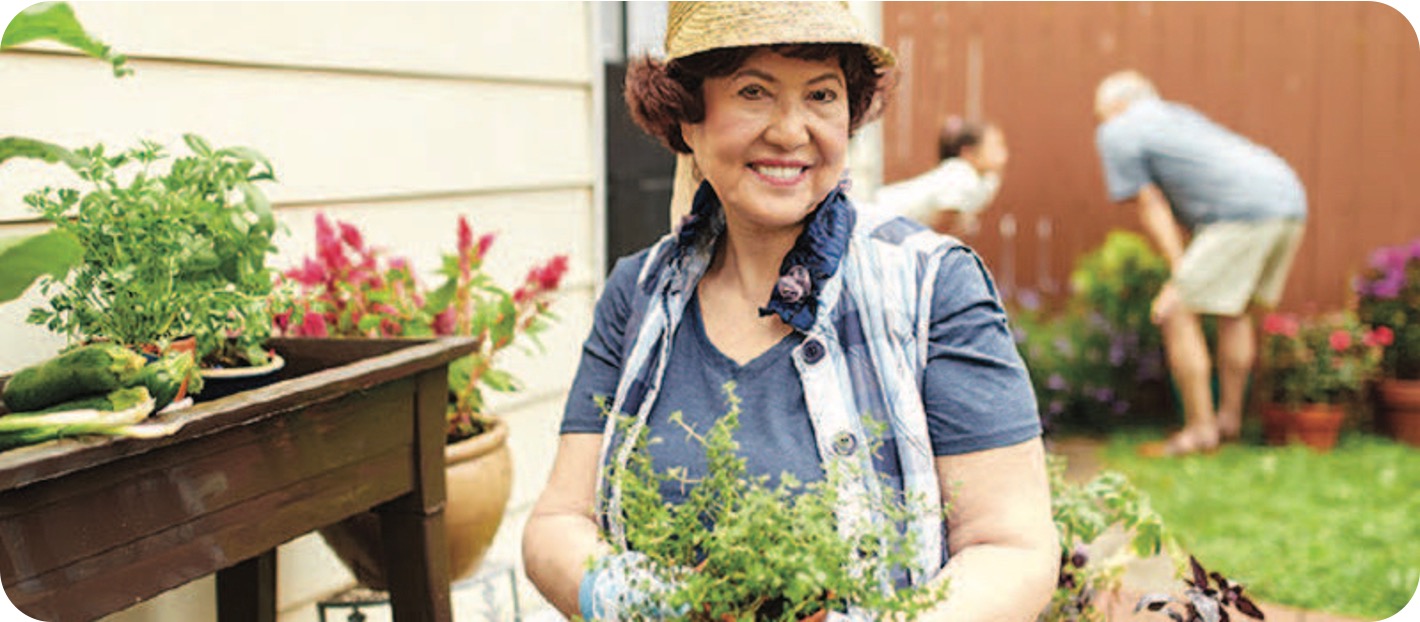If you’ve ever owned a pet or a plant, you know the joys of each. That puppy-tail wag makes your heart sing when you arrive home, or perhaps you relish a nightly snuggle session with your cat on the couch. You might celebrate when a peony unfurls into a splash of pink or delight in the hardy nature of a baby cactus. But did you know that pets and plants can also improve your health and well-being? It’s true, and we’ve got the science to prove it.
(English)
Slideshow overview
Pets and plants can improve your health and well-being
If you’ve ever owned a pet or a plant, you know the joys of each. That puppy-tail wag makes your heart sing when you arrive home, or perhaps you relish a nightly snuggle session with your cat on the couch. You might celebrate when a peony unfurls into a splash of pink or delight in the hardy nature of a baby cactus. But did you know that pets and plants can also improve your health and well-being? It’s true, and we’ve got the science to prove it.
Fewer peeves
According to research, pets can help reduce stress. Stress can negatively affect physical health through increased inflammation and cortisol, which can put your body in a constant state of alert and may ultimately lead to chronic conditions like heart disease or rheumatoid arthritis. Pets have also been proven to help lower blood pressure.
Dog-gone good for your heart
Dogs might be man’s best friend but they may also be good for the heart. A study found that pets can help decrease cardiovascular risk. Simply taking the pooch for a daily walk could improve your heart health. Walking has been shown to reduce the risk of cardiovascular events by 31 percent. As one of the most accessible forms of exercise, all you and your dog need are a supportive pair of shoes and a leash.

Grow your strength
Gardening can provide great exercise. Mowing, weeding, planting and pruning all require muscle strength, endurance and flexibility. In fact, horticultural therapy can help improve dexterity, coordination, balance and stamina. For those less inclined to dig in the dirt, simply walking through a garden, park or in nature may provide similar health benefits as walking a dog.
Constant companion
Social isolation has been proven to have negative effects on health including an increased risk of dementia. Pets can help combat loneliness and even depression as a form of social support, as some pet owners might see their pet’s affection as unconditional and non-judgmental. Pets have even been shown to help those with chronic pain through mood management, relaxation and social activation. Pet ownership may be especially important to those living alone to provide social connection, meaning and a regular routine.

The garden of the mind
Turns out, surrounding yourself with greenery can improve your white and gray matter (a.k.a., your brain). Plants can have far-reaching benefits on mental health, including reduced anxiety and stress and improved mood. Being around plant life, indoors or out, can help improve our psychological and cognitive well-being, which can lead to greater happiness and life satisfaction.
Solutions for the petless and plantless
If housing restrictions or other factors prevent you from living a pet-and plant-filled life, you can still enjoy the health benefits without the ownership. You might try volunteering at an animal shelter or community garden. Or head to your nearest park or open space for a stroll. You might offer to pet- or plant-sit for friends and family to help boost your spirits without the long-term commitment. You might even turn your social media feed into a pet or plant bonanza by following related content.
Looking for more health and wellness tips? Check out our other resources.
Y0040_GHHKUTFEN_C

Un cuidado más personalizado comienza con su agente de ventas certificado de Humana.
Humana lo conectará con un agente de ventas certificado en su comunidad. Este agente le ayudará a conectarse con la atención primaria más adecuada para usted.




